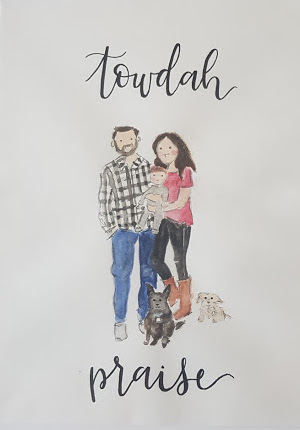The first time we lost a baby I was confused and unsure what to think. By the fourth loss, I knew exactly what to think.
I keep a prayer journal, and admittedly the pages were filled more consistently when I was in traditional church ministry. I had more time in the early morning hours to sit and read, pray, and worship. A morning show doesn’t provide that time, and so the pages of my journal are filled less frequently the past 6 months.
However, what is consistent through the pages covering the last 3 years, are prayers of hope, grief, uncertainty, and thanksgiving. Most of all, the prayers are usually thanksgiving to God for nothing.
Ther are 7 Hebrew words for “praise.” A few years ago I did a sermon series on worship and spent quite a bit of time studying the words and their use throughout Scripture.
Yadah is one of those words. It means: literally, to use (i.e. hold out) the hand; physically, to throw (a stone, an arrow) at or away; especially to revere or worship (with extended hands).
A lot of people will be familiar with Yadah. We often see people lift their hands in worship, whether during song or prayer.
Towdah is another word and it comes from the same root word as Yadah. It means: properly, an extension of the hand, i.e. (by implication) avowal, or (usually) adoration.
Towdah is usually used as a “thank offering.” In other words, in the first testament, when somebody makes a sacrifice in thanksgiving to God, they towdah. What’s interesting is, at times, they towdah – give thanks, or sacrifice of thanksgiving to God – for not only things that have happened, but things that have not yet happened as well.
And, in times of distress, God tells the people that while the present may be difficult, in the future they will again give thanks and lift their hands in praise of him. For example, Isaiah 51:3 says:
The Lord will comfort Israel again
and have pity on her ruins.
Her desert will blossom like Eden,
her barren wilderness like the garden of the Lord.
Joy and gladness will be found there.
Songs of thanksgiving (towdah) will fill the air.

Suffering is difficult to understand. For some, it’s impossible to understand. How can there be a loving and living God, when death, illness, loss of unborn babies, abound even for those who profess faith in, and love for, that God?
In Romans 8 Paul speaks to this reality. He wasn’t exactly a stranger to suffering, and he suffered because he preached the message of Jesus. In verse 28 he says:
And we know that God causes everything to work together for the good of those who love God and are called according to his purpose for them.
Paul is speaking in the context of suffering, encouraging others who are also suffering. Paul throughout his ministry always gave thanks got God. He gave thanks for the present circumstances he found himself in, and he gave thanks for the future – for the things not yet at hand.
Towdah.
My prayer journal has been littered with that word over the last three years.
Towdah – thanks to God for all the good that we have had. Thanks to God that in the midst of suffering and grief he was (and is) present. Thanks to God for new understanding for others that are also suffering through loss and especially infertility. Thanks to God who understands suffering, and provides comfort and peace in the midst of it.
Towdah – thanks for nothing . . . yet. Thanks for the things that have not yet come, but will! For a child to love somehow, one day. Whether it was our own through birth, adoption, or helping children through the foster system.
This blog has been in my head for over a year now, but I could just never write it out for some reason. This morning I’m sitting in our backyard, drinking coffee, and praying “Towdah,” while we wait to welcome our daughter into the world. My wife is nine days overdue. We’ve waited over three years for this. I can wait a couple more days.
Dear God: thanks for nothing, and everything.
Amen.

